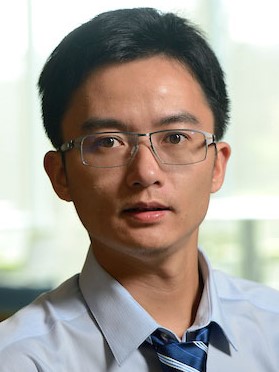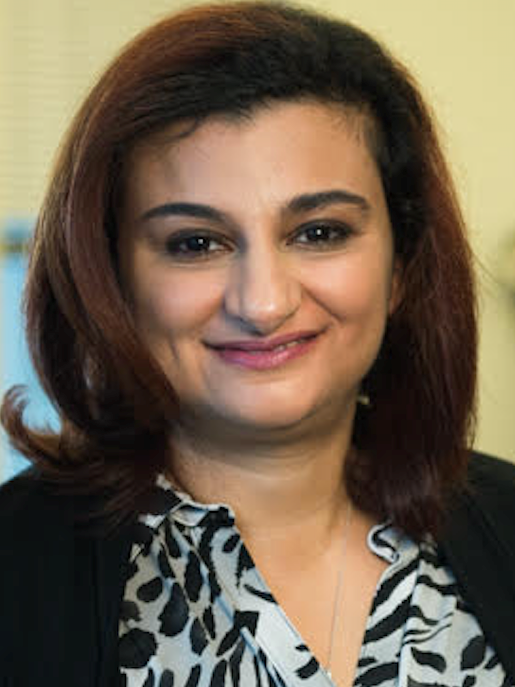ICSE 2019 Technical Briefings offer conference attendees the opportunity to gain new insight, knowledge, and skills in select software engineering areas of topical importance today. Four technical briefings, each 90 minutes in length and aimed at both industrial participants and academic participants, are integrated into main conference program.
Each technical briefing is led by an expert in the relevant field, and typically consists of an overview of the problem, a description of current and emerging practical approaches and relevant research results, and a brief outlook at possible future trends and research directions.
Questions from attendees are encouraged.
No one needs to register to attend technical briefings; it is an explicit goal of the conference to make them accessible to all ICSE registrants.
So, if you want …
- … to gain valuable technical knowledge that you can use today;
- … your employees or students to get an overview of the state-of-the-art in emerging areas of software engineering; or
- … to remain competitive in your field …
… then consider attending these exciting presentations!
Analyzing Flow to Measure Value in Software Delivery
Time: Wednesday, May 29, 11:00-12:30
Mik Kersten
Tasktop
Projects, org charts and software architecture are the best representations of value creation we have today. They are insufficient to support the scale and complexity of the software that is powering more and more of the world economy. In this talk, Dr. Kersten will propose a new set of abstractions for understanding and improving how software is built. He will introduce the concept of Value Stream Networks, which provide a set of models that span beyond the software architecture to include all of the artifacts involved in building software, from business idea to customer support. He will then show how we can visualize and operate on this new model in order to gain insights into the ground truth of what flows through organizations delivering software, and how we can improve that flow using the Flow Framework(tm). Kersten will summarize his experiences from open source, building a successful startup, and supporting some of the larges Agile and DevOps transformations in order to propose ideas for the research and practices still needed to better understand and manage software delivery at scale.
 Dr. Mik Kersten started his career as a Research Scientist at Xerox PARC where he created the first aspect-oriented development environment. He then pioneered the integration of development tools with Agile and DevOps as part of his Computer Science PhD at the University of British Columbia. Founding Tasktop out of that research, Mik has written over one million lines of open-source code that are still in use today, and he has brought seven successful open-source and commercial products to market. Mik’s experiences working with some of the largest digital transformations in the world has led him to identify the critical disconnect between business leaders and technologists. Since then, Mik has been working on creating new tools and a new framework for connecting software value stream networks and enabling the shift from project to product.
Dr. Mik Kersten started his career as a Research Scientist at Xerox PARC where he created the first aspect-oriented development environment. He then pioneered the integration of development tools with Agile and DevOps as part of his Computer Science PhD at the University of British Columbia. Founding Tasktop out of that research, Mik has written over one million lines of open-source code that are still in use today, and he has brought seven successful open-source and commercial products to market. Mik’s experiences working with some of the largest digital transformations in the world has led him to identify the critical disconnect between business leaders and technologists. Since then, Mik has been working on creating new tools and a new framework for connecting software value stream networks and enabling the shift from project to product.
AIOps: Real-World Challenges and Research Innovations
Time: Thursday, May 30, 11:00-12:30
Yingnong Dang, Qingwei Lin, Peng Huang
Microsoft
AIOps is about empowering software and service engineers (e.g., developers, program managers, support engineers, site reliability engineers) to efficiently and effectively build and operate online services and applications at scale with artificial intelligence (AI) and machine learning (ML) techniques. AIOps can help improve service quality and customer satisfaction, boost engineering productivity, and reduce operational cost. In this technical briefing, we first summarize the real-world challenges in building AIOps solutions based on our practice and experience in Microsoft. We then propose a roadmap of AIOps related research directions, and share a few successful AIOps solutions we have built for Microsoft service products.
 Yingnong Dang is a Principal Data Scientist Manager in Microsoft Azure. Yingnong is responsible of building innovative analytics and ML solutions for improving Azure Infrastructure availability and capacity, boosting engineering productivity, and increasing customer satisfaction. Yingnong’s team has close partnership with Microsoft Research and the academia. Before joining Azure in December 2013, Yingnong was a researcher in Microsoft Research Asia lab. His research areas include software analytics, data visualization, data mining, and human-compute interaction. As a researcher, he has transferred various technologies to Microsoft product teams including code clone analysis, crash dump analysis, performance trace analysis, etc. He owns 45+ U.S. patents and has published papers in top conferences including ICSE, FSE, VLDB, USNIX ATC, and NSDI.
Yingnong Dang is a Principal Data Scientist Manager in Microsoft Azure. Yingnong is responsible of building innovative analytics and ML solutions for improving Azure Infrastructure availability and capacity, boosting engineering productivity, and increasing customer satisfaction. Yingnong’s team has close partnership with Microsoft Research and the academia. Before joining Azure in December 2013, Yingnong was a researcher in Microsoft Research Asia lab. His research areas include software analytics, data visualization, data mining, and human-compute interaction. As a researcher, he has transferred various technologies to Microsoft product teams including code clone analysis, crash dump analysis, performance trace analysis, etc. He owns 45+ U.S. patents and has published papers in top conferences including ICSE, FSE, VLDB, USNIX ATC, and NSDI.
 Qingwei Lin Joined Microsoft Research in 2006, and is now a Lead Researcher in DKI (Data Knowledge Intelligence) area of Microsoft Research. Qingwei worked on data-driven technologies for service intelligence, using machine learning and data mining algorithms. In service intelligence area, Qingwei has multiple publications in the conferences of ICSE, FSE, ASE, DSN, SigKDD, USENIX ATC, ICDM, WWW, etc. The research technologies have been transferred into multiple Microsoft product divisions, such as Microsoft Azure, Office 365, Windows, etc. Qingwei hosted Microsoft company-wide “Service Intelligence” workshop as the Chair for 4 consecutive years.
Qingwei Lin Joined Microsoft Research in 2006, and is now a Lead Researcher in DKI (Data Knowledge Intelligence) area of Microsoft Research. Qingwei worked on data-driven technologies for service intelligence, using machine learning and data mining algorithms. In service intelligence area, Qingwei has multiple publications in the conferences of ICSE, FSE, ASE, DSN, SigKDD, USENIX ATC, ICDM, WWW, etc. The research technologies have been transferred into multiple Microsoft product divisions, such as Microsoft Azure, Office 365, Windows, etc. Qingwei hosted Microsoft company-wide “Service Intelligence” workshop as the Chair for 4 consecutive years.
 Peng Huang is an Assistant Professor at the Johns Hopkins University Computer Science department (https://cs.jhu.edu/~huang). His research interests lie broadly in computer systems, programming language, and software engineering. He has published in top conferences including OSDI, SOSP, NSDI, MobiSys, EuroSys and ICSE. His co-authored paper received best paper award at OSDI ’16. Dr. Huang received his MS and PhD from UC San Diego.
Peng Huang is an Assistant Professor at the Johns Hopkins University Computer Science department (https://cs.jhu.edu/~huang). His research interests lie broadly in computer systems, programming language, and software engineering. He has published in top conferences including OSDI, SOSP, NSDI, MobiSys, EuroSys and ICSE. His co-authored paper received best paper award at OSDI ’16. Dr. Huang received his MS and PhD from UC San Diego.
Software engineering for automated vehicles: Addressing the needs of cars that run on software and data
Time: Thursday, May 30, 14:00-15:30
Krzysztof Czarnecki
University of Waterloo
Automated vehicles are AI-based safety-critical robots that fulfill transportation needs while interacting with the general public in traffic. This technical briefing gives an overview of how such systems work and analyzes how software engineering needs to be adapted for their development. Software engineering for automated vehicles requires a DevOps-style process with special considerations for functions based on machine learning and incremental safety assurance at vehicle and fleet level. The briefing will review current industry practices and discuss opportunities for future research.
 Krzysztof Czarnecki is a Professor of Electrical and Computer Engineering at the University of Waterloo. Before coming to Waterloo, he was a researcher at DaimlerChrysler Research (1995-2002), Germany, focusing on improving software development practices and technologies in enterprise, automotive, and aerospace sectors. While at Waterloo, he held the NSERC/Bank of Nova Scotia Industrial Research Chair in Requirements Engineering of Service-oriented Software Systems (2008-2013) and has worked on methods and tools for engineering complex software-intensive systems. He received the Premier’s Research Excellence Award in 2004 and the British Computing Society in Upper Canada Award for Outstanding Contributions to IT Industry in 2008. He has also received seven Best Paper Awards, two ACM Distinguished Paper Awards, and one Most Influential Paper Award. His current research focuses on autonomous driving and the safety of systems that rely on artificial intelligence. He serves on Society of Automotive Engineers task forces on level of driving automation, reference architecture for automated driving systems, and maneuvers and behaviors. As part of this research, he co-leads the development of UW Moose, Canada’s first self-driving research vehicle (autonomoose.net).
Krzysztof Czarnecki is a Professor of Electrical and Computer Engineering at the University of Waterloo. Before coming to Waterloo, he was a researcher at DaimlerChrysler Research (1995-2002), Germany, focusing on improving software development practices and technologies in enterprise, automotive, and aerospace sectors. While at Waterloo, he held the NSERC/Bank of Nova Scotia Industrial Research Chair in Requirements Engineering of Service-oriented Software Systems (2008-2013) and has worked on methods and tools for engineering complex software-intensive systems. He received the Premier’s Research Excellence Award in 2004 and the British Computing Society in Upper Canada Award for Outstanding Contributions to IT Industry in 2008. He has also received seven Best Paper Awards, two ACM Distinguished Paper Awards, and one Most Influential Paper Award. His current research focuses on autonomous driving and the safety of systems that rely on artificial intelligence. He serves on Society of Automotive Engineers task forces on level of driving automation, reference architecture for automated driving systems, and maneuvers and behaviors. As part of this research, he co-leads the development of UW Moose, Canada’s first self-driving research vehicle (autonomoose.net).
Developing Games that Capture and Engage Users
Time: Friday, May 31, 11:00-12:30
Magy Seif El-Nasr
Northeastern University
Developing games that can capture and engage users is not an easy process. There is no one set process to accomplish this goal. Currently the game industry is increasing in terms of size, delivering a variety of games, and adopting many different business and software development models. One trend that started to appear in the recent years is the use of data to guide the design process and provide insights on all different aspects of development, including software work processes, usability, monetization, and marketing, to mention a few. In this technical briefing, I will concentrate on the role of data in the game software development process and how data can be used to derive insights and design action items. I will use case studies of collaborative work we have accomplished with different game companies and a variety of game types as examples to demonstrate the utility of the approach.
 Magy Seif El-Nasr is an associate Professor in the Khoury College of Computer and Information Sciences and Arts, Media and Design, where she directs the GUII (Game User Intelligence and Interaction) Lab. Dr. Seif El-Nasr earned her Ph.D. from Northwestern University in Computer Science. Her research focuses on two goals (a) developing automated tools and techniques for authoring, adapting, and personalizing virtual environments (e.g., interactive narrative, believable characters, and visuals), and (b) developing methodologies to model and understand players’ behaviors and motivations through the development of novel mixed-methods approaches that use machine learning and visualization tools. She published the first book on the subject of game data science, called Game Analytics: Maximizing the Value of Player Data. Her work is internationally known and cited in several game industry books, including Programming Believable Characters for Computer Games (Game Development Series) and Real-time Cinematography for Games. She has received several awards and recognition within the game research community. Notably, she received four Best Paper Awards and several citations in industry books and magazines. She is on the editorial board of: IEEE Transactions on Computational Intelligence and Artificial Intelligence in Games and IEEE Transactions on Affective Computing. https://web.northeastern.edu/magy/.
Magy Seif El-Nasr is an associate Professor in the Khoury College of Computer and Information Sciences and Arts, Media and Design, where she directs the GUII (Game User Intelligence and Interaction) Lab. Dr. Seif El-Nasr earned her Ph.D. from Northwestern University in Computer Science. Her research focuses on two goals (a) developing automated tools and techniques for authoring, adapting, and personalizing virtual environments (e.g., interactive narrative, believable characters, and visuals), and (b) developing methodologies to model and understand players’ behaviors and motivations through the development of novel mixed-methods approaches that use machine learning and visualization tools. She published the first book on the subject of game data science, called Game Analytics: Maximizing the Value of Player Data. Her work is internationally known and cited in several game industry books, including Programming Believable Characters for Computer Games (Game Development Series) and Real-time Cinematography for Games. She has received several awards and recognition within the game research community. Notably, she received four Best Paper Awards and several citations in industry books and magazines. She is on the editorial board of: IEEE Transactions on Computational Intelligence and Artificial Intelligence in Games and IEEE Transactions on Affective Computing. https://web.northeastern.edu/magy/.





